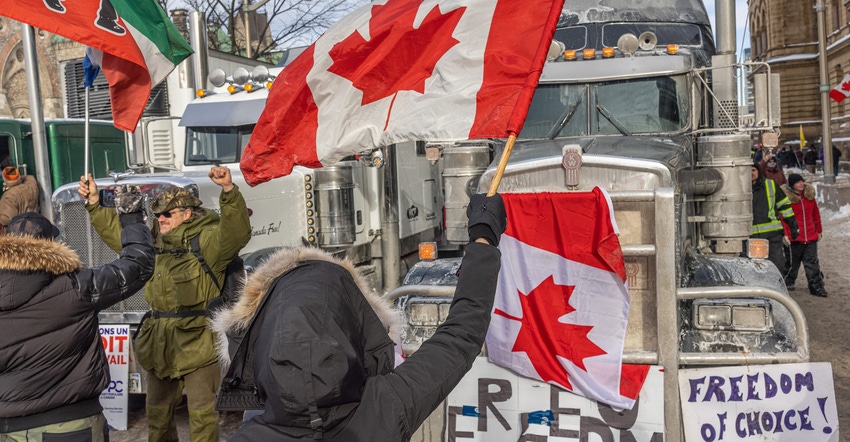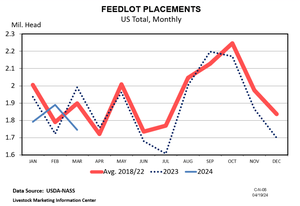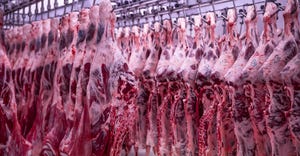The vaccine mandate for truckers has sparked concerns about delivery problems and higher freight costs when the supply chain is already under strain.

By Jen Skerritt
Protesters who are rallying against vaccine mandates are holding up shipments of Canadian beef to the U.S.
More than 150 loads of beef are stuck at the border at Coutts, Alberta, the Canadian Meat Council said Monday. A blockade of vehicles has been slowing traffic at the crossing between Alberta and Montana since the weekend in a protest against rules that require truckers crossing the border to be fully vaccinated.
“It is not yet clear what the provincial or federal government is doing to facilitate a resolution. The longer this takes, it will cause more supply chain issues and this will affect everyone from producer to consumer,” Marie-France MacKinnon, a spokesperson for the council, said by email.
The vaccine mandate for truckers has sparked concerns about delivery problems and higher freight costs at a time when the supply chain is already under strain from weather disruptions and a lack of available workers. Canadian trucking groups have estimated as many as 90% of truckers are vaccinated, but in the U.S., only about half of truckers are vaccinated.
Earlier Monday, Prime Minister Justin Trudeau denounced the convoy of truckers and other protesters who have blockaded parts of Ottawa, Canada’s capital city. The protest has become a catch-all movement against Covid restrictions, with many demonstrators carrying anti-Trudeau flags and signs.
Canadian Transport Minister Omar Alghabra said the mandate has not had a “measurable impact on the volume of traffic crossing our border” and about 100,000 truckers crossed in the first week after the rule was implemented.
Grocers in some parts of Canada are seeing shortages of fruits and vegetables while others are having trouble supplying eggs and meat, said Gary Sands, senior vice president of the Canadian Federation of Independent Grocers. Most of the shortages are in semi-rural or remote areas that depend on trucks for deliveries, he said.
Last year’s flooding in British Columbia, virus-related worker absenteeism and labor shortages have all snarled the food supply chain, Sands said.
“Every truck you’re taking out of the supply chain is not a good thing at this time,” Sands said Monday by phone. “But truckers in this convoy are doing the same thing. Snarling the traffic in southern Alberta. What are you doing? How are you helping? We should be having food convoys, not freedom convoys.”
© 2022 Bloomberg L.P.
About the Author(s)
You May Also Like



